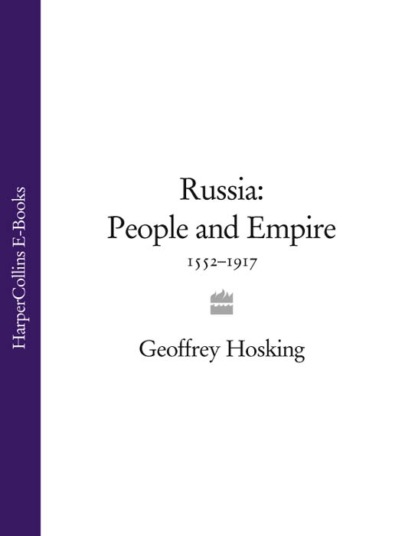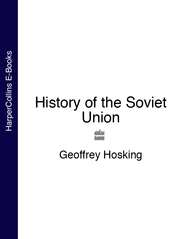По всем вопросам обращайтесь на: info@litportal.ru
(©) 2003-2024.
✖
Russia: People and Empire: 1552–1917
Настройки чтения
Размер шрифта
Высота строк
Поля
(#litres_trial_promo)
However, Alexander was also susceptible to the other concept of liberty, extended to all social classes rather than guaranteed by the privileges of only one of them. This was the French Jacobin rather than the English Whig view, and it was the one held in his circle of young friends, one of whom, Pavel Stroganov, had attended meetings of the Club des Jacobins in Paris. On his accession he summoned them to regular consultations as his ‘Secret Committee’ (Neglasnyi Komitet), or his ‘Committee of Public Safety’, as he sometimes jokingly called it. Before he came to the throne, he declared to another of its members, the young Polish aristocrat, Prince Adam Czartoryski, his ‘hatred of despotism, wherever and by whatever means it was exercised’, and affirmed that he ‘loved liberty and that liberty was owed equally to all men’.
(#litres_trial_promo)
It was not, though, at all clear how such a concept of liberty could be adapted to a country a large number of whose inhabitants were serfs. It could only be done, if at all, by abolishing serfdom, that is by undermining the property and privileges of those who possessed the limited amount of civil liberty currently available in the Russian state. And that in turn could only be done, if at all, by a monarch who retained in his hands the fullness of autocratic authority. That was the fundamental dilemma which Alexander never resolved, throughout his reign: to carry out serious reform, he needed to retain his autocratic powers intact. Alexander’s personality was equivocal and secretive, as a result of his long sojourn at the court of his father, where he combined his humane and liberal studies with a genuine enthusiasm for the military parades which so delighted Paul. But his ambivalence was intensified by the objective situation in which he found himself when he came to the throne, for it meant he could introduce liberty only through despotism.
For that reason, his Secret Committee remained secret, and its deliberations were never published. All its members were aware that any public discussion of the possible abolition or even amelioration of serfdom would excite expectations among the peasants which could easily lead to massive public disorder. In the event, Alexander got nowhere even with his modest proposal to regulate the burdens which landowners could impose on their serfs. The only product of their deliberations was a law of 1803 which permitted (but certainly did not require) landowners to emancipate whole villages of serfs, with all the land they cultivated. Even that law was passed without consulting the Senate, which might well have objected to it.
In 1802, in deference to the Senatorial party, Alexander had granted the Senate the droit de remontrance, but he had then ignored their advice the first time they tried to exercise it, over a law governing the conditions for the retirement of army officers. In practice, it lapsed thereafter. In that way, Russia received neither a Rechtstaat nor the Jacobin style of civil liberty.
(#litres_trial_promo)
Though his early reforming efforts came to nothing, and the Secret Committee broke up, Alexander never altogether abandoned the hope of bringing about a beneficial transformation of Russian society. He tried to approach the dilemma from the side, as it were, by trying out reforms in the more westernized non-Russian areas, with constitutions in Finland and Poland [see Part 1], and with an emancipation of the serfs in the Baltic provinces. He continued to commission proposals for a Russian constitution from his advisers, notably Speranskii in 1808–12, and Novosil’tsev in 1817.
EDUCATION At the end of the eighteenth century the crucial aspects of official education policy were in place, largely as a result of the work of Catherine II. The main aim at secondary and higher levels was to prepare candidates for state service, while at primary level it was to teach practical skills and to inculcate religious and moral principles – in spite of which the state system was kept quite separate from the church one, and Catherine II’s ‘Duties of Man and Citizen’ was prescribed as a basic text. All social estates, except private serfs, were to have access to education at all levels, and a ‘ladder’ was to exist to ensure that progress was possible from one level to another. Higher education followed a German model of corporate autonomy, with freedom of research as the motor of all scholarship and teaching.
In many ways these principles were remarkable, and they showed how serious Russia was in trying to live up to the standards of a European great power: self-governing institutions and the spirit of free intellectual enquiry were difficult to accommodate to an autocracy, while broad social entry was at odds with a thoroughly hierarchical society. But a closed elite educational system was not an option for Russia. A strong service nobility based on the Table of Ranks required a steady supply of young men rising from below and educated to the highest European standards. As Prince Karl Lieven, rector of Dorpat University, pointed out, ‘Where the nobility extends from the foot of the throne at one end and nearly merges with the peasantry at the other, where every year many from the lower urban and rural estates enter the nobility by achieving the necessary rank in the military or civil service – in Russia it is very difficult to organise schools [on the basis of closed hereditary estate].’
(#litres_trial_promo)
In spite of the difficulties, then, Alexander confirmed his grandmother’s principles in his ‘Preliminary Regulation for Public Education’ of 24 January 1803, and even extended them by declaring the intention of establishing schools at village as well as uezd and guberniia level. His plans specifically aimed to consolidate Catherine’s meritocratic view of education: they envisaged providing a ladder from each level of schooling to the next, so that disadvantaged children with talent could rise from the lower classes to serve the state. His Regulations for Educational Establishments stipulated that they should ‘inspire in [pupils] the eagerness and devotion to learning which, upon their leaving school, will stimulate them to continue towards even further improvement of themselves.’
(#litres_trial_promo)
Furthermore, the existing universities at Moscow, Vil’na and Dor-pat were to be joined by new foundations at St Petersburg, Khar’kov and Kazan’. Each university was to be self-governing, with control over its own curriculum and the appointment of professors, though under the supervision of a state-appointed curator. It was expected to assist the expansion of education by taking charge of an educational district, training teachers for the schools in it and establishing and supervising their curriculum.
(#litres_trial_promo)
The new universities experienced great difficulties in their early years. There were not enough students: those who did present themselves were often poorly prepared, indisciplined and rowdy, and dropped out before acquiring a diploma. Most of the early professors were foreign, and lectured in German or Latin, to the dismay of their less educated listeners; in 1814 Count Kochubei argued that it would be better to bring in clergymen to do the teaching rather than subject students to German tuition. With school districts to inspect, the faculty was greatly overworked, and not all of them took their teaching duties seriously. Conflicts often broke out between Russian and foreign teachers, with the Russians complaining that the foreigners were indifferent towards the students, and the foreigners dismissing the Russians as boorish and unscholarly. An established university, like Moscow, or one backed by fierce local loyalties, like Vil’na or Dorpat, could overcome these problems. But Khar’kov, Kazan’ and even St Petersburg experienced very trying early years, when they were vulnerable to financial and official pressure. Some of them were under attack for fostering libertinism and atheism.
(#litres_trial_promo)
By the end of Alexander’s reign, it was clear that neither the legacy of the Enlightenment nor the zeal of the Bible Society could provide an adequate foundation for flourishing universities which would be genuinely Russian. His successor, Nicholas I, was deeply suspicious of them, and would have liked to subordinate them completely to the state. But his Minister of Education, Count S.S. Uvarov, resisted this tendency and evolved a compromise, embodied in the University Statute of 1835. It deprived universities of their function of supervising schools, and also eroded their immunities by abolishing the courts in which they maintained student discipline. Professors were in future to be appointed by the Minister of Education.
Yet in all other respects Alexander’s principles were upheld: universities continued to elect their own rectors, to determine their curricula, run their examinations and award their own diplomas. Uvarov did not waver from the view that a general liberal-arts education, rather than cameralism or vocational training, was most appropriate for the upper levels of the civil service. He wanted to combine Europeanism – including a good grounding in the classics – with religious-moral instruction and Russian patriotism. His was a compromise which was very difficult to maintain, but he stuck to it for some fifteen years, until the European revolutions of 1848 sharply intensified Nicholas’s fear of thin and hungry graduates.
(#litres_trial_promo)
The hard-won success of the universities greatly improved the quality of recruits to the civil service, and laid the basis for the later reforms of Alexander II. At the same time that success opened wider the gulf which separated the educated elites from the mass of the population. The further down the educational system one went, the more halting was the expansion of schooling. Alexander’s plans for village schools proved especially over-optimistic: neither the treasury nor local sources were ready to provide the means to make even a serious start to their provision. At a time when Prussia and Austria were beginning to expand primary education even in the small towns and villages, Russia’s rural regions were serviced only by a meagre network of small parish schools.
NAPOLEON BONAPARTE Alexander’s reign was overshadowed by a figure who was an example both to emulate and to abhor: Napoleon Bonaparte. The continual presence and intermittent deadly threat of Napoleon dramatized the duality of Alexander’s personality and of his situation. Napoleon’s principles of government were rooted in Enlightenment thinking, and in exaggerated form they exemplified what Alexander would have liked to achieve: a meritocracy led by an authoritarian leader, mobilizing the resources of the population for military action, and able to rely on convinced patriotism among all social classes. Yet Napoleon appeared in such a form that he was a challenge not only to Alexander personally, but to Russia as a whole. His social and political ideals were a direct affront to the unearned privileges of the nobility, while his 1812 invasion threatened the very survival of Russia. The way in which he unsettled Europe, both by his military campaigns and more fundamentally by the challenge to create new nation states on the French model, faced Alexander with ever fresh quandaries to which he had to find his own answers.
Вы ознакомились с фрагментом книги.
Приобретайте полный текст книги у нашего партнера:
Приобретайте полный текст книги у нашего партнера:






